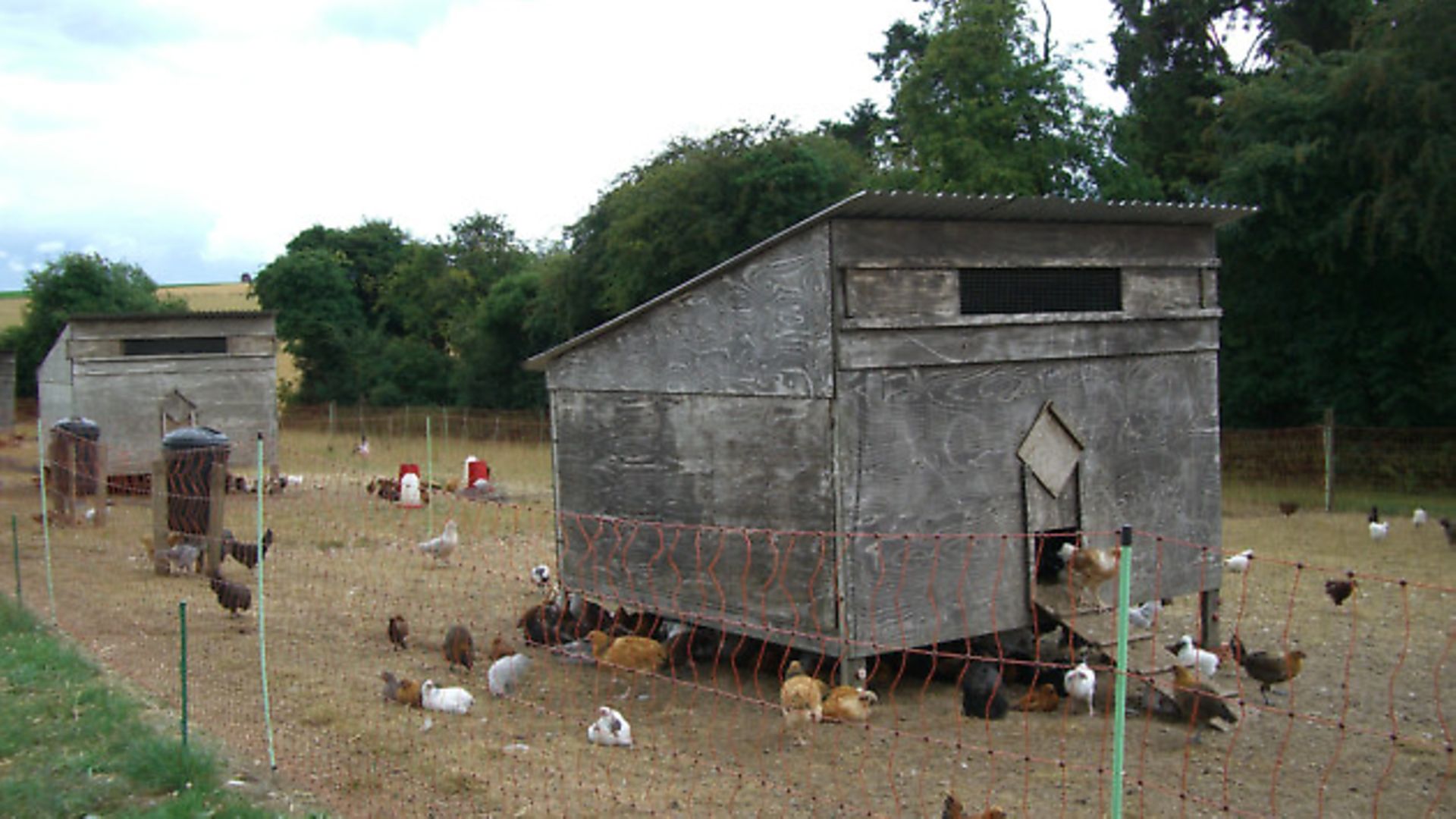The theft of birds and equipment can be heartbreaking. Anne Perdeaux offers advice

Chicken-keeping is more popular than ever, but increased interest has brought with it some unwelcome attention. There have been numerous reports of chicken-rustling, especially in spring and summer when birds are in high demand.
It’s not only pure-breed chickens – hybrids too have been lifted from their coops. Pet chickens have even been stolen from schools.
It can be a good night’s work for thieves, with pure breeds fetching around £20 – £45 each, sometimes more. Hybrids can make upwards of £15 a bird, and their productivity makes them desirable too. Chicken equipment is sometimes taken, including coops.
The birds may be sold at markets, kept for breeding or possibly used for food – although this doesn’t seem so likely. The value of a chicken as meat is usually much less than one sold live at auction. Once stolen, it’s not easy to track the birds down; to most people chickens look very similar. In a busy market, who’s to tell if one of the hundreds of cages contains stolen birds?
While chickens have disappeared from gardens, allotments and schools, breeders are often the most lucrative targets. A breeder may have valuable chickens – sometimes more than can be contained in the relative safety of a garden. Chicken sheds in remote fields can allow thieves a whole night to take their pick, with heartbreaking results.
A case study
This is how Jane Hutchinson, a former breeder of Orpingtons and Pekins, describes her experience:
“This certainly was a devastating loss for me. It was about eight years ago and I’d taken years sourcing the bloodlines needed for my breeding. To have nearly every bird taken overnight was beyond words. As our birds were kept on our land away from home, we didn’t realise what had happened until the morning afterwards.
“As I arrived at our field, I immediately noticed the security chain on the gate had been cut. On drawing into the car park, I was totally at a loss for words – most of the electric fencing had gone, and some of my small banty houses were on their sides. I ran over and could see that all the large sheds had been broken into, and I opened the doors to total silence. It was heartbreaking. I actually sat down and wept. The only birds that had been left were what I called my egg-layers, of no real value.
“They must have taken some time to strip the whole place as, not only did they take all my birds, but they took down all the electric fencing, took the battery, poultry food and powders. I felt that whoever had taken the birds knew what they were looking for, and took what they needed to keep them somewhere before they sold them on. I had allowed people to collect from us as many people wish to see the parent birds, and I had no issues with this, but would never do it again. We contacted the police but to no avail. I notified as many poultry sites as possible, as well as local auctions, and had many lovely people looking out for birds being offered. I never got any back, and decided to give up breeding until we were in a position to do so from home. I now only breed a few Pekins from home, but it was a hard lesson for sure.”
Jane is keen to make others aware of this issue, and I am very grateful to her for sharing her story.
Sadly, she isn’t alone. Other breeders have been left similarly affected, and some have given up altogether. While predator attacks are a natural hazard, human thefts can leave victims feeling violated, even persecuted. As Jane says, showing stock to prospective customers is normal, but a theft must leave one wondering which of the cheerful chicken fanciers wasn’t quite what they seemed.
Not only does a breeder lose years of work overnight, but there is also the issue of the birds’ welfare. Old friends, plus new ones carefully raised from eggs, all disappeared to an uncertain fate. It doesn’t bear thinking about.
Unpleasant though it is to think about, by being aware of the problem we can try to protect our birds, as well as keeping an eye open for unusual activity at other properties. Why is that unfamiliar car parked outside the farm? What are those people doing peering into gardens? Why is the stranger at the door asking about my chickens? It could be perfectly innocent, but it’s worth reporting suspicious behaviour to the police.
Farms, allotments and schools can attract the attention of vandals as well as thieves, but maybe it seems unlikely that anyone would risk stealing a few chickens from your own back-garden? Regrettably, current enthusiasm for outdoor living can offer crooks rich and easy pickings. Tools, furniture, plants – even statuary, paving slabs and turf – have disappeared. Chickens may be taken along with other items, or specifically targeted.
Image(s) provided by:
Archant







